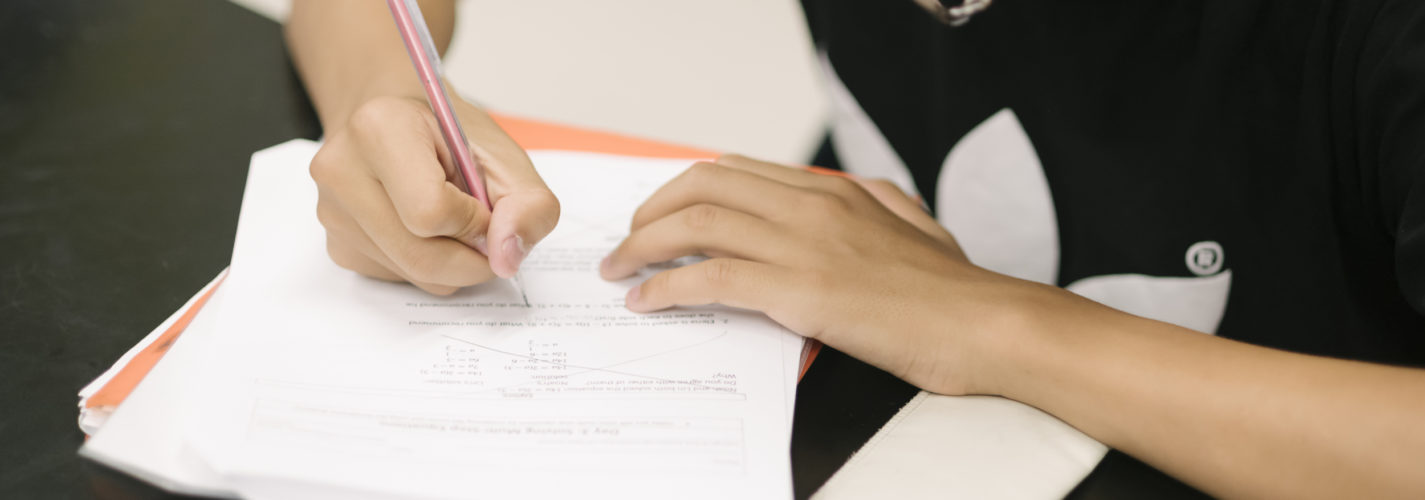Connecting Students with Community: My Story & Call to Action
By Jessica Mendoza
This post is the first in a series from students calling for more community engagement opportunities in the classroom.
My experiences in schools, and now in college, have led me to believe that community engagement opportunities have the potential to make classroom learning more effective. Community engagement, which connects what students are learning in the classroom to the world around them, can take many different forms, from service learning to hearing from speakers. To strengthen our education system, and help students become critical thinkers and engaged citizens, schools should make space for community engagement to create an environment for student learning beyond the classroom.
ENGAGING WITH THE CRIMINAL JUSTICE COMMUNITY
I first became interested in the criminal justice system when, in high school, I started learning about the school-to-prison pipeline. But, since then, my interest has grown tremendously through conversations, workshops, and experiences during my first year at Augsburg University.
A couple of months ago, for example, I had the opportunity to learn about the impact incarceration has from the people who actually experience legal barriers and stigmas attached with a criminal record. The National Organizer for Public Achievement at Augsburg University’s Sabo Center for Democracy and Citizenship, Dennis Donovan, invited me to be a part of a program at Minnesota Correctional Facility-Stillwater called “Prison Connections.” The program, associated with the Circle of Peace, Boy’s Totem Town, and Maxfield Elementary School, strives to create a community of work and learning.
The purpose of the program? As Donovan explained, it’s to have offenders contribute to the outside world by sharing their stories with local college students. The ultimate goal is to have these two groups create opportunities and mentorship to prevent incarcerations.
Donovan invited me, along with a fellow student from Augsburg, to visit the Stillwater prison—and we said “yes.”
VISITING THE STILLWATER CORRECTIONAL FACILITY
Although I’ve read about prisons, and seen them in TV shows and movies, actually visiting a prison and talking with offenders was a very different experience. The faraway statistics and headlines I’ve seen throughout my life morphed into real faces and stories.
Our time in Stillwater was short, so we only had time to ask two questions. (1) What are some things you wish more people knew about you being in prison or your life experiences? (2) If you could talk to your younger self, at what age would you want to speak to yourself at? And what advice would you give yourself?
Inmates’ answers varied, but themes of isolation and pain emerged consistently. One participant of the program shared that his experiences leading up to being in prison were, “harrowing, humbling, and humiliating. But came with a sense of acceptance and responsibility.” Another shared his belief that, “relationships foster growth,” and that government restrictions preventing people from building them creates a barrier to sharing stories that could help change cycles of suffering.
“Our education system would be stronger if schools provided more opportunities to learn from people with various experiences rather than just relying on textbooks.”
The answers to the second question about childhood and advice brought up memories of being in school and lacking support systems. Many participants of Prison Connections shared that their educational environments didn’t discuss or offer mental health support. Multiple participants discussed the feeling of, “trying to survive one’s circumstances.”
We left after the 90-minute session, overwhelmed by what we had heard and confident that the inmates could have kept talking—and we could have kept learning—into the night.
UN-PACKING THE EXPERIENCE
I have had some time to reflect on the stories I heard, but the truth is that, months later, I am still processing what I heard that day.
The most important reflection I have is the need to expose more students to various subjects, social issues, and people that make up our community. Our education system would be stronger if schools provided more opportunities to learn from people with various experiences rather than just relying on textbooks.
Instead of reading about the school-to-prison pipeline in high school, I wish I had actually seen it. I wish I hadn’t needed to find my own resources and opportunities to explore this topic outside of the classroom—that it had been part of my classroom experience.
For me, it may be criminal justice reform, but each student has their own interest. I believe school should be the place where youth have a chance to develop their unique passions, and to connect with community members who have similar interests.
I know helping every student find their passion and engage with the community around it won’t be easy—but I believe it’s important that schools at least try.
EdAllies seeks to elevate diverse voices and foster a candid dialogue about education. While we provide our blog as a platform for EdVoices and other guest contributors, the views and opinions they express are solely their own.

